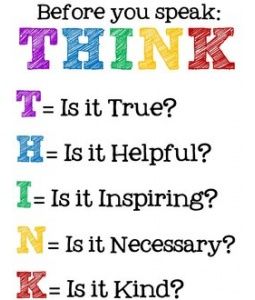Effective Political Conversations: They Can Be Done
Your political discourse doesn’t have to be explosive, you just aren’t mitigating potential flames.
January 26, 2021
In today’s volatile political climate, it can oftentimes feel difficult to engage in meaningful political discourse.
In the flames composed by the instability of our country, the politicization of racism, sexism, homophobia, antisemitism, islamophobia and bigotry have only engulfed the U.S. in a greater fire.
The added incorporation of religious beliefs in politics has additionally fueled our environment, commonly impressed within policy decisions in direct opposition to the separation of church and state.
As difficult as this may be to hear, the downfall of your political conversations is an output of your own behavior.
With the absence of hateful, intolerant, and outdated rhetoric that some believe are protected as a part of their ‘political beliefs’ (which they are not), I’ve noticed that talking about politics does not have to be taboo or difficult-people simply just go about it incorrectly.
Although I’m not the messiah of civility, I truly want everyone to have consistently effective discussions. That comes from my love of government and desire to maintain democratic ideals.
“Every society needs people who are more conservative to protect from rash decision making, and those who are more progressive to address the community’s problems and move it forward. Without both perspectives that society will fail,” said social worker Dan Maigler, “Recognize that the people who disagree with your position are essential to helping you see your own blind spots.”
THINK before you speak
Especially within the confines of the pandemic, many have turned to the internet as a platform to share their political beliefs.

One of the easiest ways to spread the word on political and human rights issues is on social media.
In person, we rely on body language and facial gestures to gauge each other’s responses. Online however, a certain level of humanity is lost; we can never truly understand how the other party feels, but can only make an educated guess from the information they provide.
Especially when masked by the anonymity of a screen, it’s easy to undermine the gravity of one’s words and the effect they have on others.

Despite its simplicity, the acronym of THINK has stuck with me throughout my life. Especially as an individual prone to talk before I think, reminding myself of these principles has done me much good.
To combat the risk of engaging in an exchange more harmful than helpful, I suggest listening more than you talk (or type for that matter), and when you do verbally contribute, refer to the “THINK” acronym.
Not only does this provide more time to both craft an effective response and form a greater understanding of their perspective, it also mitigates the probability of lashing out, resorting to name-calling, or leaving both parties unsatisfied.
“Commit to really listening when the other person is talking,” said social studies teacher Cheryl Kyrias. “Take your emotions out of it.”
Never engage in name-calling
This should be a given. Resorting to name-calling in a situation defending your legitimacy (which is every situation you’re involved in) completely breaks down any layer of trust built up by your opposing party. This is especially amplified when using slurs and extremely offensive language.
Foul language shows the other participant that you are more concerned with arguing with them or proving them wrong than sparking meaningful political discourse.
The ‘winning’ and ‘losing’ of political arguments is difficult to gauge as it is, however, if you resort to name-calling or the use of slurs, you have profoundly lost. This goes for any and all facets of our lives. You will have lost on the opportunity to listen to other perspectives, to educate others on your political beliefs, to build trust and respect between you and the opposing party.
“You may not make much change in the person you are conversing with that day, but your goal should be to plant the seed of your perspective for them to consider later,” said Maigler. “You also must be willing to give time and space to their thoughts.”
Don’t try to change their mind
It’s imperative to remember that not everyone will agree with you. Everyone’s past experiences and conversations will give them unique insight into the issue at hand.
One’s proclivity to change their mind after a political conversation with you does not define the success of a political conversation. It is absolutely okay for both of you to walk away with the same beliefs you entered with.
“Go into the conversation with an open mind,” said Kyrias. “Don’t try to change the other person’s views.”
The hallmark of successful political discourse is having learned a new perspective, and, in turn, set an example for civil political conversation.
Celebrate areas of Common Ground
No matter your gauged political differences, there is always something the participants of any conversation can agree upon. Our humanity simply has too many facets for this not to be true.
Perhaps it’s something as simple as a favorite band or teacher, or even the admiration of a politician’s consistency.
There is always a commonality to celebrate.
Do your part in looking for it to restore a much needed sense of humanity in more serious conversations.
Sources are Important
“Stick to the issues and cite your sources” said Kyrias.
The easiest way to enhance your legitimacy is using sources committed to producing non-partisan, factual content.
Additionally, the author of your sources is equally as important as the piece’s publisher. If you’re really committed to backing up your stance, use content created by experts with widely accepted credentials.
Put your history-student cap on and ask yourself, “who is the most qualified person to present their opinion on this matter?”
In politics, you don’t have to be an expert, and it is somewhat unreasonable to expect every teenager to be perfectly informed.
Having these conversations are important and, after all, disagreement is the backbone of every policy decision ever made. However, disagreement doesn’t have to come with arguments.








Gamer • Jan 26, 2021 at 11:57 am
So called hateful, intolerant, and outdated rhetoric can often be the truth…